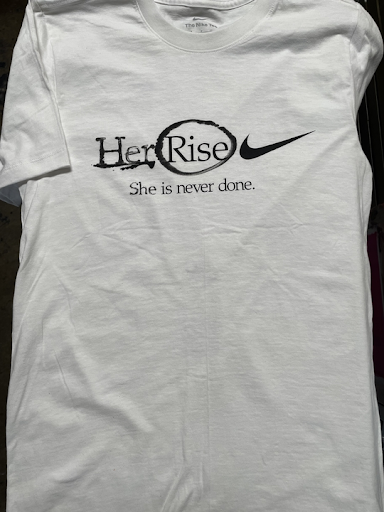The Relentless Drive Behind the MERCH Dept.: How Kris McAlavey Turned Risk, Reinvestment, and Licensing into Growth

Kris McAlavey never imagined that a senior-year branding project in college would be the spark that would launch a career defined by bold risks, relentless investment, and an obsession with quality. Today, as the founder of the MERCH dept., McAlavey has built more than a merchandise company; he's built a brand ecosystem that blends creativity, precision, and strategic foresight.
"I was nineteen, sitting at dinners with regional sales directors and executives, and I realized, if these were the people shaping brands, I could do this too," McAlavey recalls. That early exposure, paired with his background in sports and the confidence honed on the soccer field, gave him the conviction to chart his own path.
McAlavey's first steps into the world of branded merchandise came almost accidentally. A family friend launched a small business, and McAlavey began helping them with their branding and printing needs. At the same time, he was gaining experience at a beverage company, later acquired by a giant in the market, which exposed him to large-scale marketing and operations. "A sudden acquisition, and I'm thrown into conversations with leadership. It was a crash course in how fast industries shift and how adaptable you need to be," he says.
That adaptability proved critical when McAlavey founded MERCH dept. in 2014. He began by acquiring the domains and licenses to lock down the brand identity before stepping in to take over the printing operation of a colleague's business. "I didn't buy his company," he explains. "I took over the warehouse, the equipment, and one of the employees. There was just enough of a base that I knew I could build from."
The next several years became a story of relentless reinvestment. By 2017, McAlavey had brought embroidery in-house, and from 2018 through 2022, he poured capital into new equipment, screen-printing presses, embroidery machines, DTG and DTF digital printers, and an array of specialized tools. It was not always glamorous. "Some of it was stupidity," he admits. "But it was really a belief in myself and in knowing how to build value. You don't just buy a machine, you buy the ability to scale, to deliver consistently, and to protect the brand you are building."
This philosophy of reinvestment extended beyond hardware. McAlavey also prioritized trademarking and licensing, often in international markets. "People focus on the right to use a name," he explains, "but it's really about the right to protect. That's what adds long-term value." Protecting intellectual property across borders proved costly and time-consuming, but it set the MERCH dept. apart from competitors who waited too long to secure their brands.
As the company grew, McAlavey worked with households, demonstrating that his small operation could stand shoulder-to-shoulder with global players. But those relationships were not built overnight; they were the result of years of consistently delivering quality.
With the disrupted supply chain during COVID-19 and employees facing personal challenges, McAlavey had to pivot quickly. He doubled down on trademarks, invested in infrastructure, and explored new markets, even as competitors faltered. "It was a mix of fear and foresight," he admits. "But those moves gave us the confidence to scale after the pandemic."
For McAlavey, building the MERCH dept. has always been about more than merchandise. It's about creating a lasting, scalable platform that empowers brands to express themselves tangibly. From sports teams in Europe to small businesses in California, MERCH dept. operates at the intersection of creativity and operational excellence.
"I have always believed that visibility is survival," McAlavey reflects. "In a world saturated with digital noise, tangible merchandise still cuts through. People wear it, carry it, and live with it. That's powerful."
Looking ahead, McAlavey envisions MERCH dept. not just as a supplier, but as a household name synonymous with trust, quality, and innovation. "We are in an on-demand generation," he says. "The challenge is to deliver better products faster, while staying true to the brand and its value."
From a college project to a global merchandise powerhouse, McAlavey's journey underscores the power of conviction, investment, and persistence. His story is a reminder that building a brand is not just about ideas, it's about the relentless execution behind them.
© Copyright IBTimes 2025. All rights reserved.




















